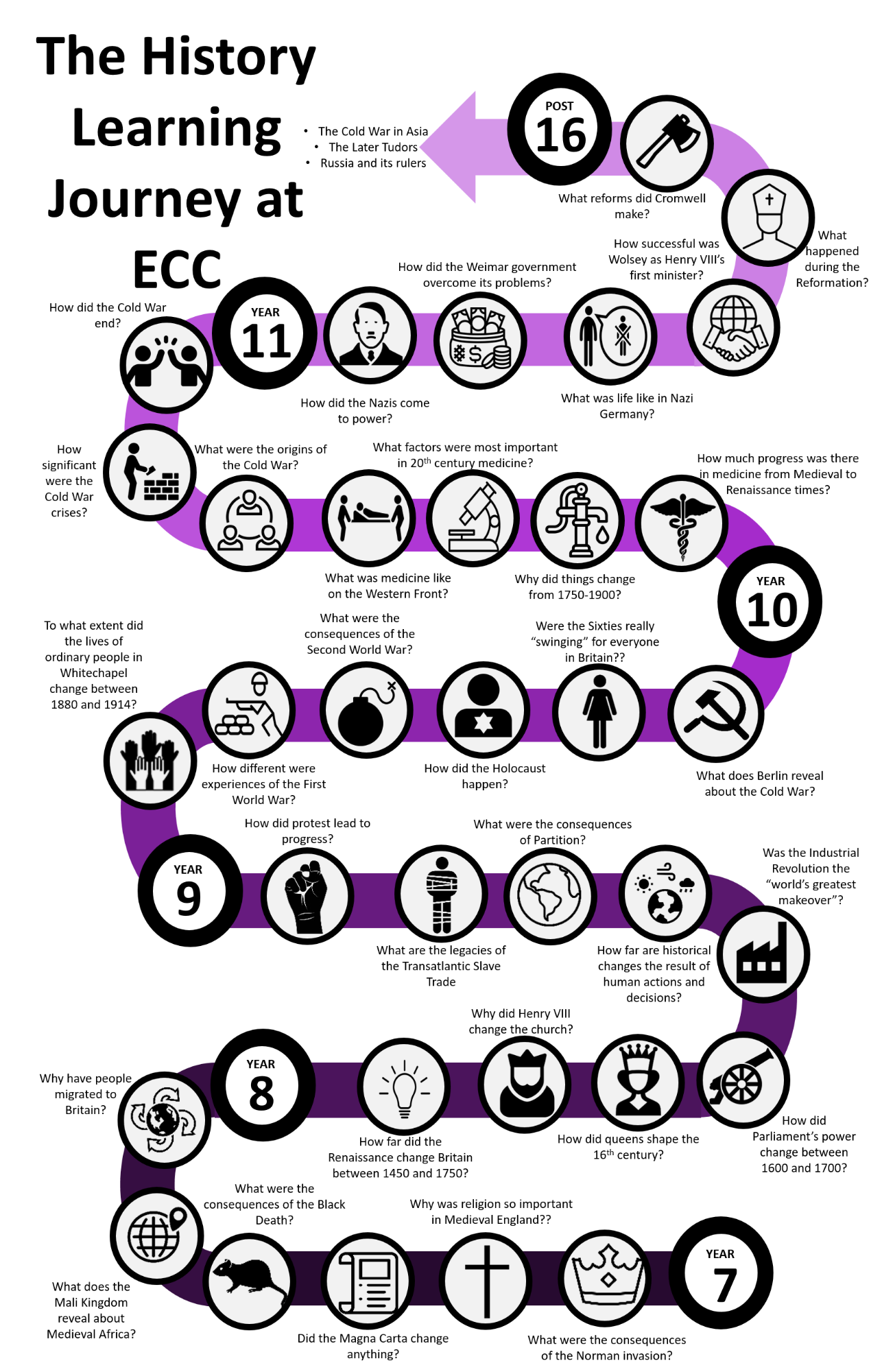History
History is an important and crucial subject for the 21st century. It enables students to understand the world around them and appreciate how that world, as it is now, was constructed. It enables students to develop skills of empathy and respect for individuals and communities that are different to their own. This is particularly important in Exmouth and its surrounding areas as a community which is more monocultural than other parts of the country. History shows the resilience of people in the past and how the challenges that they faced were overcome. It shows how responsible citizens should act within a democratic society and why that society should be valued. Finally, in a world of competing narratives which seek to reduce complex issues to simple ideological viewpoints, it develops Exmouth students’ ability to critically evaluate sources of evidence.
The History curriculum at Exmouth Community College looks to develop students’ understanding of the past through the explicit teaching of key concepts, both disciplinary (change and continuity, causation) and substantive (monarch, democracy), in a carefully sequenced format. We are ambitious in looking to challenge students by producing engaging and complex enquiry questions for our units which require students to think hard about historical issues. This also enables them to access carefully curated historical scholarship which shows students what experts currently think about historical issues. This helps students to develop their written communication skills through seeing more complex vocabulary and skilfully crafted arguments.
Finally, the History curriculum at Exmouth Community College is fundamentally underpinned by a knowledge-rich approach which largely follows the National Curriculum. History is designed to tell stories, as such, the choices about the stories we choose to tell are significant. It is important to us that these stories at Exmouth Community College cover both the traditional narrative arc of History, alongside a wide range of diverse voices. This will help to foster a feeling of belonging from all our students. These include voices from well-known and famous events, as well as lesser known and local stories of people who lived in our community and walked the same streets as we do today. In the multicultural world that students will be moving into, it is vital that they embrace the complexities of history and see how what has happened before us influences the way that we live our lives today.

